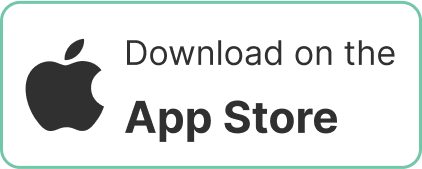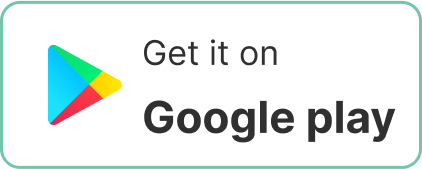In the competitive world of healthcare, standing out during a job interview is crucial. With many qualified professionals vying for the same roles, it’s not just about giving the perfect answer; it’s about telling the right stories. Healthcare professionals can use authentic storytelling to showcase their unique experiences, skills, and passion for patient care. Whether you’re interviewing through a platform like LinkHealthStaff, which connects healthcare professionals with hospitals, or in any healthcare setting, storytelling can make all the difference. Let’s explore how you can leverage storytelling to excel in healthcare job interviews.
1. Why Storytelling Matters in Healthcare Job Interviews
In healthcare, employers seek more than just technical expertise. They are looking for candidates who can connect with patients, collaborate with multidisciplinary teams, and navigate complex situations. Storytelling allows you to illustrate these qualities through real-life examples from your career.
If you’re using a platform like LinkHealthStaff, where your role is often highlighted by your ability to adapt and meet hospital needs, sharing stories about your experience in fast-paced environments or challenging patient interactions can help set you apart from other candidates.
2. Turning Challenging Questions into Opportunities to Tell Your Story
During interviews, you’ll likely encounter tough questions, such as “What’s your greatest weakness?” or “Tell us about a time you made a mistake.” Instead of offering generic responses, use these moments to share stories that demonstrate personal growth, problem-solving skills, and resilience.
For example, when asked about handling a difficult situation, you could share a story about a time you worked with a challenging patient or faced a critical decision in a high-pressure environment. Through storytelling, you turn these questions into opportunities to show your expertise, adaptability, and compassion—qualities valued by hospitals and healthcare organizations connected through LinkHealthStaff.
3. The STAR Method: A Framework for Telling Your Story Effectively
The STAR method is a proven way to structure your stories for maximum impact:
Situation: Describe the challenge or scenario.
Task: Explain your role and responsibilities.
Action: Highlight the steps you took to address the situation.
Result: Conclude with the outcome, focusing on positive impacts, such as patient recovery or process improvement.
For example, if asked about teamwork, share a specific story using the STAR method to explain how you collaborated with colleagues to solve a problem, showcasing both your professional skills and your ability to work well in teams—a crucial trait when connecting with hospitals via LinkHealthStaff.
4. The Power of Authenticity: Why Being Genuine Beats Rehearsed Answers
Authenticity is key in healthcare interviews. While it’s important to prepare, over-rehearsed answers can sound robotic and inauthentic. In healthcare, where empathy and human connection are paramount, interviewers value stories that reflect your genuine passion for patient care and collaboration.
When sharing your experiences, be honest about your challenges and the lessons you’ve learned. Authentic storytelling helps interviewers see the real you and understand how your skills and values align with the role, especially when connecting through platforms like LinkHealthStaff, which values professionals who can demonstrate both competence and compassion.
5. Building Rapport with the Interviewer: How Stories Foster Connection
Interviewers in healthcare are often looking for candidates who can build rapport with patients, families, and colleagues. The ability to tell a meaningful, relatable story can help you connect with the interviewer, making the conversation feel more like a dialogue than an interrogation.
For example, when asked about working with patients from diverse backgrounds, share a story about how you adapted your communication style to meet a patient’s needs. This not only shows your ability to connect with patients but also highlights your cultural competence and communication skills, qualities that are highly valued by hospitals and healthcare facilities connected through LinkHealthStaff.
6. Common Mistakes to Avoid in Healthcare Interviews
Despite preparing well, candidates often make mistakes such as overloading answers with medical jargon or failing to demonstrate emotional intelligence. In healthcare, it’s just as important to showcase your soft skills—such as empathy, teamwork, and communication—as it is to highlight your clinical knowledge.
For instance, when discussing patient care, focus on telling a story that demonstrates both your technical expertise and your ability to manage the emotional and relational aspects of patient care. This approach makes you more relatable to interviewers and helps you stand out in a field that values both hard and soft skills.
7. How Storytelling Builds Your Personal Brand as a Healthcare Professional
Storytelling is not only about acing interviews—it’s also about building your personal brand. The stories you share with interviewers help shape their perception of you, especially in a healthcare environment. Your experiences, values, and how you approach challenges contribute to your professional identity.
When you connect with hospitals through LinkHealthStaff, your personal brand is crucial. It’s about showing that you are not only a skilled healthcare professional but also someone who embodies the values of patient care, teamwork, and continual learning.
Conclusion: Stand Out with Authentic Storytelling
Interviews are an opportunity to go beyond your resume and showcase the unique stories that make you who you are as a healthcare professional. Whether you’re connecting with hospitals through LinkHealthStaff or directly with healthcare employers, storytelling is an invaluable tool for demonstrating your technical skills, emotional intelligence, and passion for patient care.
Instead of memorizing perfect answers, focus on sharing real-life experiences that highlight your strengths, growth, and the impact you’ve had in your field. Authentic storytelling will not only help you stand out from the competition but also foster a deeper connection with interviewers and potential employers.






